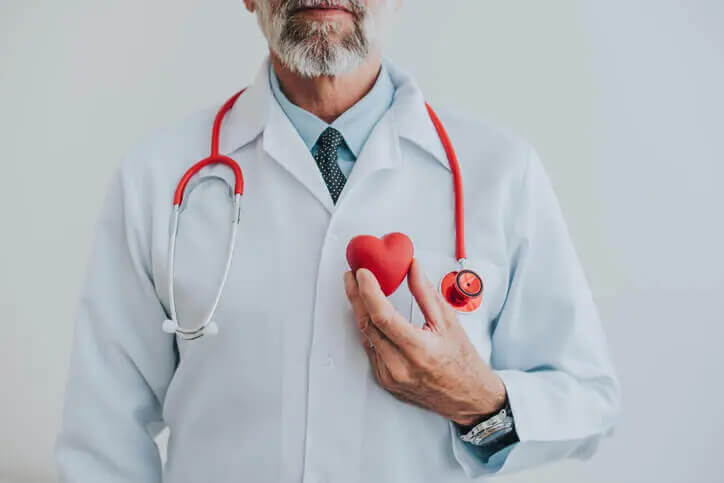
If you are at higher risk of developing cardiovascular disease due to your family history, lifestyle, or other underlying disorders, your doctor may advise you to engage in aerobic exercises to prevent cardiovascular diseases from developing.
Aerobic exercises, otherwise known as cardio or cardiovascular exercises, refer to any physical activity that increases an individual’s heart rate and breathing while engaging large muscle groups. Regular aerobic exercise offers numerous benefits for preventing cardiovascular diseases such as heart disease, stroke, hypertension, and more.
Now the question is:How does aerobic exercise help prevent cardiovascular diseases? Let’s find out.
Cardio Enhances Blood Circulation
Cardiovascular exercises can significantly enhance blood circulation throughout the body in numerous ways. Cardio can:
- Increase your heart rate.
- Improve the amount of blood pumped out of the heart with each heartbeat (stroke volume).
- Help maintain the elasticity and flexibility of the blood vessels.
- Reduce the risk of blood clot formation by preventing stagnation.
- Improve and maintain endothelial (the inner lining of the blood vessels) function, which supports healthy blood flow.
It Manages Weight and Body Composition
Obesity and weight gain is a major risk factor for cardiovascular diseases. Regular aerobic exercises burn calories and increase metabolic rate, which helps obese and overweight patients reduce and maintain their weight in a healthy range.
It Reduces Stress
Consistent and long-term stress also increases an individual’s risk of developing diseases affectingthe heart and blood vessels. Engaging in regular cardiovascular exercises triggers the release of endorphins, a feel-good hormone. Endorphins act as a natural painkiller and enhance mood, leading to reduced stress.
Moreover, cardio workouts also lower the production of stress hormones such as adrenaline and cortisol. Some forms of cardiovascular exercises, such as mindful walking, also incorporate stress relief techniques, like deep breathing and meditation, that can further enhance the stress-reducing benefits of aerobic exercises.
It Lowers Blood Pressure
Studies have found that engaging in regular aerobic exercises produces a positive impact on lowering blood pressure, particularly in individuals with hypertension.
Cardiovascular exercises strengthen the heart muscles – and a strong heart can pump blood with less effort, leading to less pressure against the wall of the blood vessels (lower blood pressure). Moreover, cardiovascular exercises or aerobic exercises also dilate the blood vessels which reduce resistance to blood flow, resulting in overall lower pressure within the arteries.
It Maintains Healthy Cholesterol Levels
Cholesterol is a type of fat that circulates in the blood. It has two major types: low-density lipoprotein cholesterol, which is also known as “bad” cholesterol,and high-density lipoprotein cholesterol, which is often referred to as “good” cholesterol.
Increased levels of LDL cholesterol is a major risk factor for cardiovascular diseases, such as arteriosclerosis and coronary artery disease.
Regular aerobic exercise along with a healthy diet and lifestyle can improve the level of HDL cholesterol and lower the level of LDL cholesterol, reducing an individual’s risk for developing cardiovascular diseases.
It Regulates Blood Sugar Level
Chronic health conditions, like type 2 diabetes, can significantly contribute to cardiovascular diseases. Regular aerobic exercise enhances the sensitivity of insulin in the body, which helps regulate blood sugar levels and ultimately prevent type 2 diabetes.
How Much Aerobic Exercise is Enough to Prevent Cardiovascular Disease?
To effectively prevent diseases of the heart and blood vessels, it is recommended to engage in at least 150 minutes of moderate-intensity cardiovascular exercise like cycling, brisk walking, or swimming per week. Alternatively, an individual can engage in 75 minutes of high-intensity aerobic exercise like dancing, aerobics, and running each week.
Always consult your cardiologist before starting a new exercise or increasing the intensity of your exercise, especially if you have an existing health condition.
Treatment of Cardiovascular Diseases in New Jersey
If you or your loved one have received a diagnosis of heart or blood vessel problems or are at high risk for developing cardiovascular diseases, trust our highly trained and exceptionally skilled cardiologists at Hudson MD Group with your heart health. Our team of cardiologists offers individualized and compassionate care for a comprehensive range of heart diseases and blood vessel disorders to help our patients live better, longer lives.
If you want to make an appointment with us, call our staff today at (973) 705-4914 or use our convenient online form.


